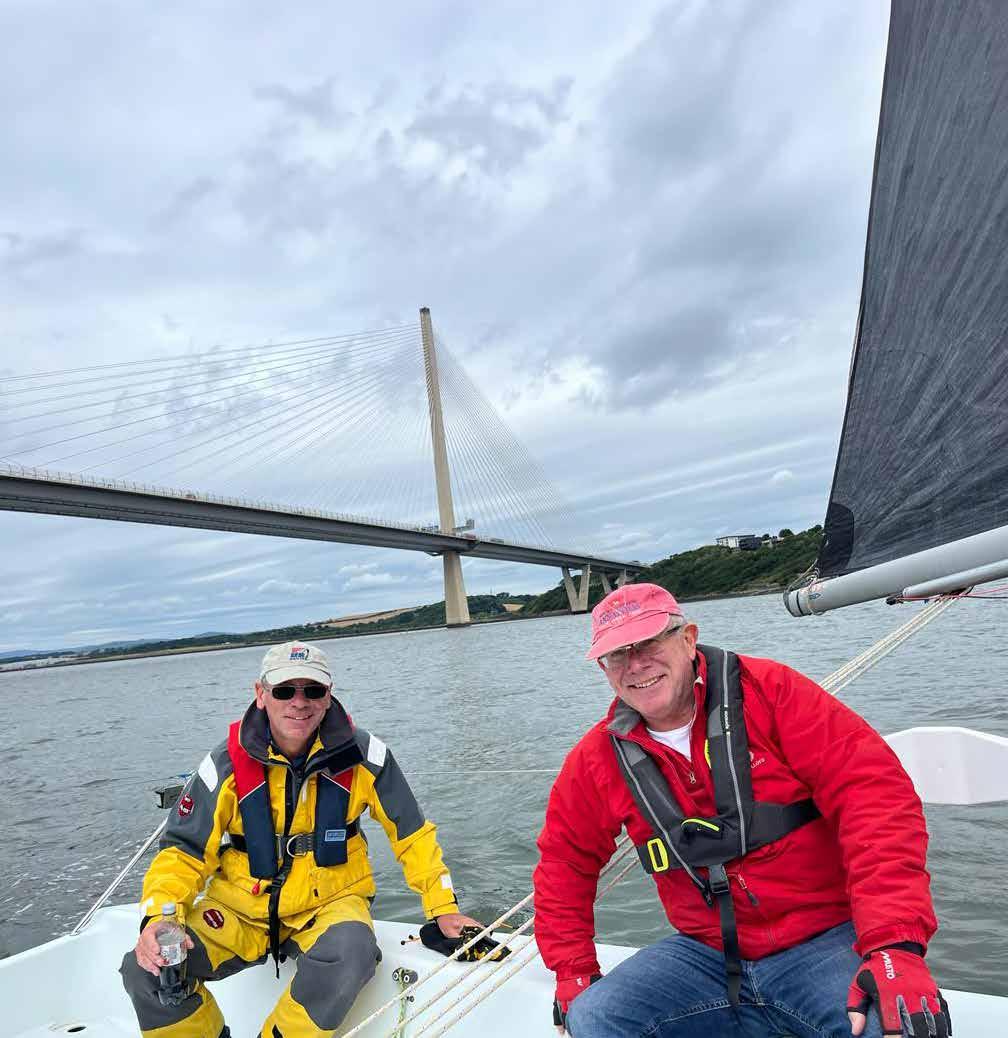
3 minute read
New captain at the helm
Simon Rennie has just taken over the role of the network’s chair from Rory Mair. A CAS board member since 2020, Simon has spent his career focusing on social inclusion and environmental justice – having started out as a forester. Voice asked him to introduce himself to the network.
It was a fantastic education in the private sector, for example getting to manage 400 staff as a 27-year-old. But then I entered into a relationship – my wife is Malaysian-Chinese –and I realised this was no life for a married man.
Advertisement
I returned to Scotland with my wife-to-be Helen and my two step-daughters; I went abroad with a suitcase and returned with a family.
What led you into the third sector?
After coming back from the tropics I gained an MBA, and applied for a job in recycling with the Wise Group, the Glasgow social enterprise. Rather than focus on recycling, they asked me to set up an urban forestry company. The trees were really a means to impart soft skills; the real output was to get people into jobs from longterm unemployment.
From there I went to the Central Scotland Forest Trust – later expanded to cover a much wider area and remit. Again, it was all about environmental improvements, but with the aim of improving people’s lives.
I was chief executive there until retiring in 2019, on my 60th birthday; I spent 30 very happy years working in the most interesting, and fulfilling, of the ‘three sectors’.
How did you get involved with CAS?
Having retired from full time employment, I was looking for opportunities to volunteer in a charity with a people focus; someone suggested I look at CAS. Of course I’d known about the network’s advice service, if not its advocacy role.
How did your career evolve?
On leaving school in Edinburgh I went to work as a forestry labourer in Aberdeenshire and Dumfries. I then studied forestry at Aberdeen University. After three years they told me they wouldn’t offer me an Honours place because I had no academic interest. I was devastated – because I’d wanted to turn them down. They were absolutely right about the lack of academic interest: I wanted to get on and ‘do stuff’.
I saw a job advertised in the tropics. I was initially sent to Nigeria, then to the Solomon Islands and latterly worked in Malaysia, all in forestry.
I joined the CAS board just as Covid was kicking off. I was visiting the Far East at the time and was interviewed for the trustee role on an early version of Zoom.
What are your priorities as chair?
I have volunteered for different organisations for a long time, and I’m very keen to see the network’s volunteering plan reinforced. For reasons that are nobody’s fault, we currently have a demand for our services that massively exceeds supply.
I also want to tackle the fragmentation of funding. It’s an issue across the sector. When I joined Wise we had four funders; by the time I left there were 100. There’s a craziness to that, particularly when you think about the holistic nature of the service we’re trying to provide at Citizens Advice. I want to work to match the shape and scale of funding to the shape of need.
In terms of CAS itself, I see my tenure as being one of ‘business as normal’. By that I mean we have mature governance systems in place that can be trusted; we need to use them to focus on securing the network’s future.
What are your interests outside the network?
I’m emotionally and practically committed to CAS for what I’ve told my wife will be two days a week. I’ve sat on, I think, 15 charitable boards, but the only other role I’ve retained is with a Midlothian charity called RUTS, which helps young people who’ve fallen out of the system to gain confidence and skills.
My wife is a dressmaker, and I’ll be continuing to support her with the business behind the scenes.
I hope I’ll still have time for sailing, which for me is a great escape. I have a wee boat moored at South Queensferry, which I used to race with four other people, but now sail alone. It’s called Soon Fung, which in Chinese means ‘fair wind’ or ‘bon voyage’.
I see my life in batches of three decades: the first 30 years were young and daft, and the middle three were middle-aged and responsible. I’m aiming to spend the next three decades being older while reverting to some daftness in due course!





